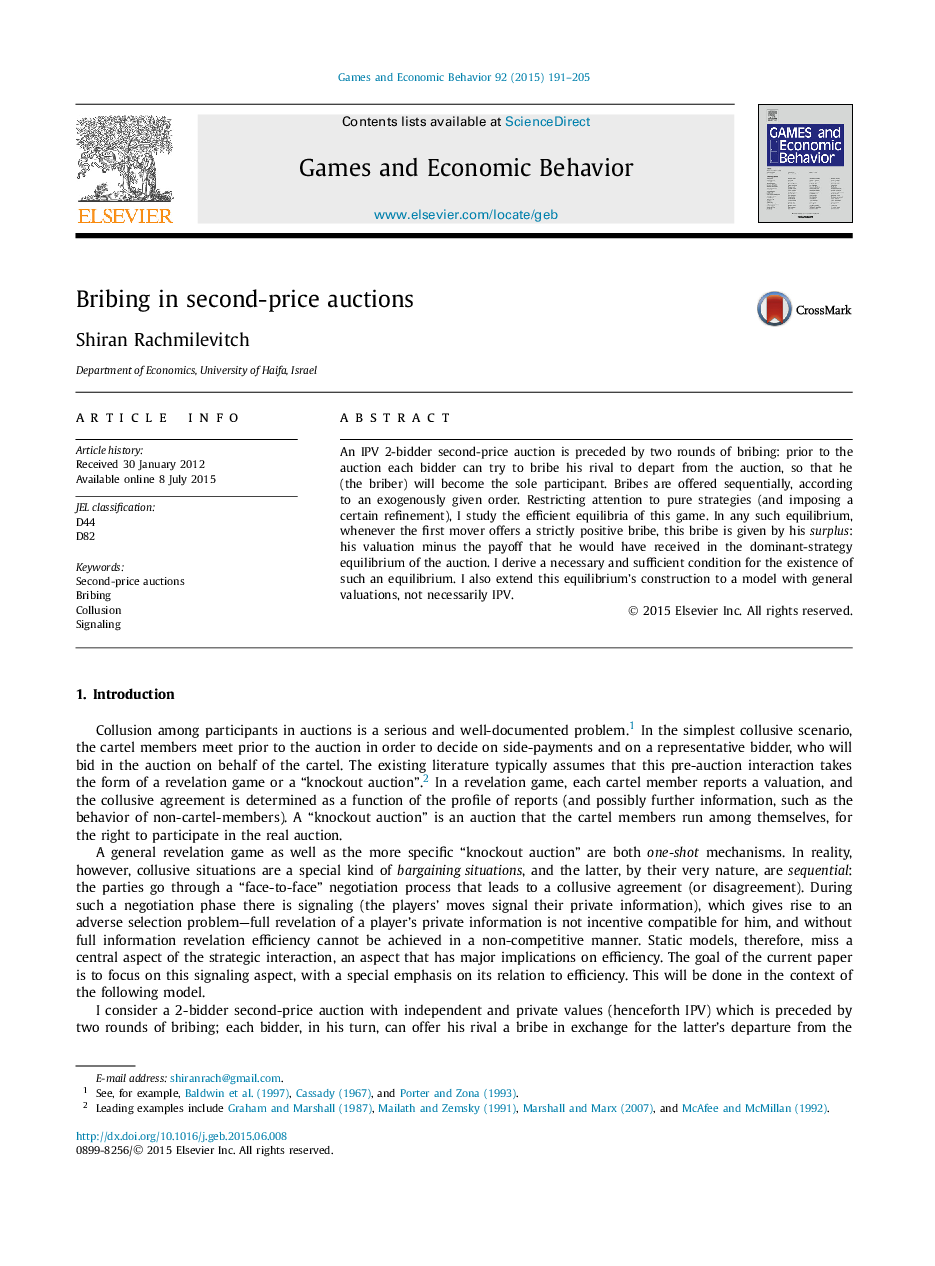| Article ID | Journal | Published Year | Pages | File Type |
|---|---|---|---|---|
| 5071592 | Games and Economic Behavior | 2015 | 15 Pages |
Abstract
An IPV 2-bidder second-price auction is preceded by two rounds of bribing: prior to the auction each bidder can try to bribe his rival to depart from the auction, so that he (the briber) will become the sole participant. Bribes are offered sequentially, according to an exogenously given order. Restricting attention to pure strategies (and imposing a certain refinement), I study the efficient equilibria of this game. In any such equilibrium, whenever the first mover offers a strictly positive bribe, this bribe is given by his surplus: his valuation minus the payoff that he would have received in the dominant-strategy equilibrium of the auction. I derive a necessary and sufficient condition for the existence of such an equilibrium. I also extend this equilibrium's construction to a model with general valuations, not necessarily IPV.
Related Topics
Social Sciences and Humanities
Economics, Econometrics and Finance
Economics and Econometrics
Authors
Shiran Rachmilevitch,
